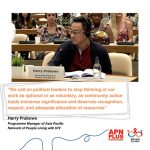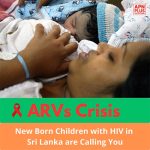In the lead-up to Indonesia’s impending general elections in 2024, the politicization of LGBTIQA+ issues is poised to take center stage yet again, steering the discourse in various directions. The prevailing sentiment among conservative factions in Indonesia perceives LGBTIQA+ individuals as divergent from societal norms. Capitalizing on this, politicians vying for the backing of conservative groups notorious for propagating anti-LGBTIQA+ sentiments are poised to exploit these issues for electoral gains. Consequently, these political figures are likely to perpetuate these negative narratives, with the media potentially amplifying such narratives, some of which even advocate the persecution of the LGBTIQA+ community within the country.
An illustrative case emerges from the ASEAN Queer Advocacy Week originally scheduled for July in Jakarta. Faced with threats from both the Indonesian public and authorities, organizers, namely ASEAN SOGIE Caucus (ASC), were compelled to cancel the event and relocate it outside Indonesia. This move was taken to ensure the safety and security of participants and organizers.
Prominent entities, such as the Indonesian Ulema Council (MUI), further inflamed the situation with statements discouraging any LGBTIQA+-related activities, asserting their incongruence with established religious teachings. Concurrently, the Indonesian National Police publicly disclosed their scrutiny of hotels in Jakarta to forestall any LGBTIQA+-linked engagements. Unfortunately, this triggered a barrage of derogatory discourse across social media platforms, condemning LGBTIQA+ individuals and groups as deviant, sinful, disease-ridden, and even advocating for their harm.
Regrettably, such stigma and discrimination perpetuated by conservative groups propagate negative stereotypes, associating sexual orientation and gender identity with risky sexual behavior and HIV transmission. Consequently, this exerts a pronounced impact on the efficacy of HIV/AIDS prevention programs across several Indonesian regions. The ramifications encompass compromised public health endeavors, undermining prevention, HIV testing, and diagnosis-related behaviors. Furthermore, stigma and discrimination erode the quality of care afforded to HIV-positive individuals, casting shadows over how communities, families, and partners perceive and interact with those living with HIV/AIDS.
Conversations with HIV activists in Indonesia reveal a marked influence of the politicized LGBT discourse on the execution of HIV control programs. A heightened level of caution characterizes social media campaigns, as HIV-related initiatives inadvertently intersect with prevailing anti-LGBTIQA+ sentiments. This inadvertently limits outreach efforts and heightens risks, despite the intrinsic health promotion objectives. Compounding these hurdles, conservative civil society organizations’ reactions further constrict their maneuverability, rendering their activities unsafe, according to Bella, the National Coordinator of Inti Muda Indonesia.
Pekanbaru serves as a poignant example of these challenges. The national politicization of LGBT issues has effectively coerced key population groups into retreating from accessing health services, opting for secrecy. Even health care providers in Pekanbaru have shied away from Mobile Voluntary Counseling and Testing (VCT) due to potential negative perceptions. They fear being deemed proponents of LGBT-related initiatives. This insight comes from Amar, the Provincial Coordinator of Inti Muda Riau.
However, a contrasting narrative emerges from Bandung. Here, the atmosphere remains secure, with no noticeable escalation of negative LGBT-related discourse within national media. At the Garuda Health Centre, a consistent stream of 20-30 visitors per weekday and 30-40 on weekends attests to uninterrupted access to Care, Support and Treatment (CST), HIV Counseling and Testing (HCT), and Sexually Transmitted Infections (STIs) services. Dwi, overseeing the HIV Program, highlights this resilience in Bandung.
“Translating Thought into Action”
LGBT people, both within Indonesia and globally, grapple with pervasive stigma and discrimination, permeating society and the healthcare domain alike. This formidable barrier impedes their access to health rights, undermining national health frameworks.
APN+ firmly believes in universal health equity, safeguarding every individual’s well-being regardless of socio-economic status, ethnicity, race, sexual orientation, gender identity, or sex characteristics. Stigma and discrimination, however, serve as formidable impediments for LGBT individuals, obstructing their access to comprehensive health services. Understanding the root causes and innovating health system responses tailored to their unique needs is crucial.
A recent UNAIDS report, “THE PATH THAT ENDS AIDS,” highlights that 59% of respondents exhibited discriminatory attitudes toward PLHIV. Both societal and institutional prejudices against diverse sexualities and gender identities remain entrenched. Such discrimination manifests as outright care denial, subpar treatment, and even abusive conduct. Health providers often lack a nuanced understanding of the specific healthcare necessities of LGBT people, particularly in addressing trauma-related concerns stemming from societal biases.
The Indonesian government’s commitment to mitigating LGBTIQA+ stigma and discrimination is imperative. Safeguarding LGBTIQA+ health and human rights necessitates robust action. It is essential to curtail the vulnerability of diverse gender identities to hate propaganda and discrimination, thus securing their rightful place and equal status within Indonesian society. Upholding the nation’s motto, which seeks unity amid diversity, demands a steadfast and coherent response.
Contributor: Davi Ardiansyah
Editor: Nikos Dacanay




